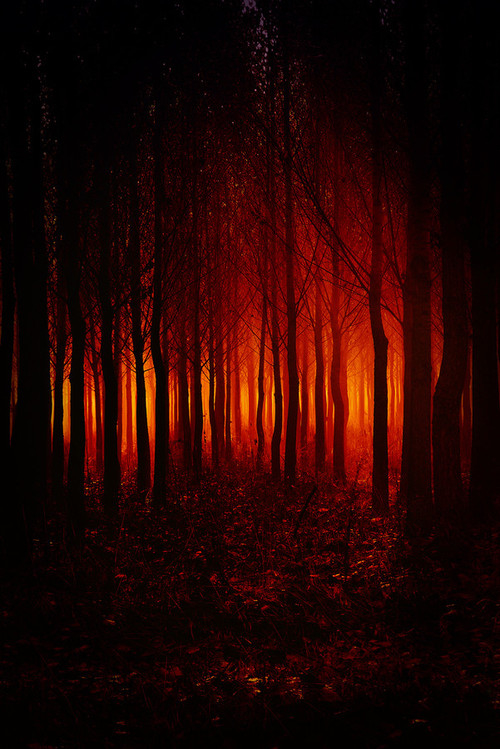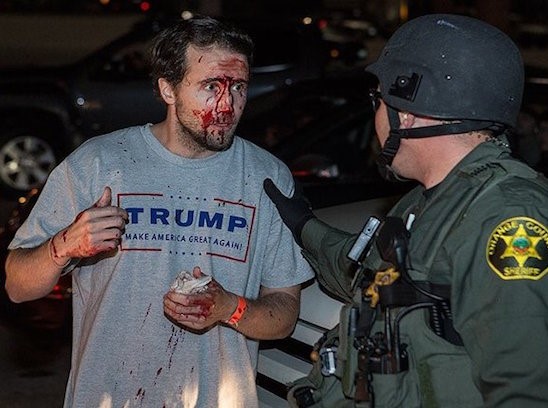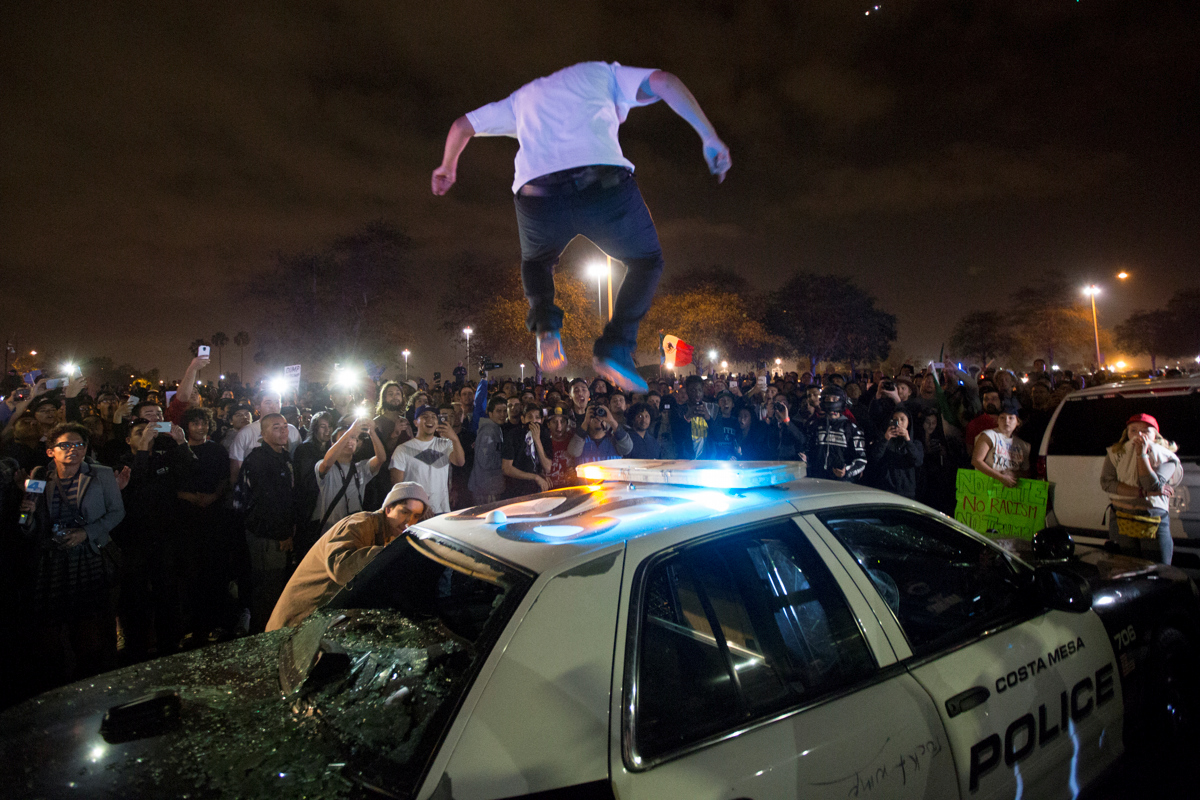In the Denzel Washington movie, “Fallen,” evil spreads without resistance by the merest touch through people, like electricity through copper wire.
 The movie, made in 1998, is called a “supernatural thriller.” It does scare the bejesus out you, but more importantly, it can spark insights into our present social and political culture.
The movie, made in 1998, is called a “supernatural thriller.” It does scare the bejesus out you, but more importantly, it can spark insights into our present social and political culture.
In the film, evil is presented as beyond our capacity to resist. It isn’t. It’s a lot more prosaic, or to use Hannah Arendt’s word, banal.
Evil exists, but it is not supernatural. It is man-made, a byproduct in collective consciousness of man’s accumulated self-centeredness, hate, fear and greed.
Evil acts with intentionality, but not primarily from the individual. It is not, as Americans like to believe, synonymous with some amorphous force of darkness equally present in all people.
Evil has no party affiliation. It can flow through entire peoples at times, depending on the condition of a peoples’ character, and whether too many are inwardly dead, rather than alive and growing as human beings.
Since evil is man-made, there is no reason to fear it as one would a supposedly supernatural force. This is how Christianity gets it completely wrong. By externalizing and supernaturalizing evil, it makes it impossible for ordinary people to address, meet and end the darkness within ourselves.
We all have darkness within us to one degree or another. However evil is a phenomenon of collective consciousness, which can become concentrated in particular people and peoples at certain times.
Darkness and evil, being cumulative, have been growing in human consciousness for millennia. They have been increasing because most people aren’t doing their own inner spadework, though many think they are, especially ‘higher consciousness’ types who say things like, “I am more aware than my father was, and my father was more aware than my grandfather.”
(Tellingly, the theme song from “Fallen” is “Time Is On My Side.” Time is indeed on evil’s side.)
The ultimate goal of evil is not violence and chaos. These are merely means to its ultimate end—the complete inward destruction and deadening of the human spirit. Evil is pure misanthropy; it is man’s neglected core hating itself so much that it wants every person on earth to feel the same way.
On the individual level, a mass murderer, for example, is so sick and weak he cannot help himself. But he is still responsible for his actions because of the willful neglect of his mind, heart and soul that made him the monster he is. Even so, a mass murderer does not exist in a vacuum.
When a culture becomes saturated with darkness, most people adapt to it by becoming dead (“zombies,” “walking dead,” etc.). Then the collective darkness in consciousness flows through people like electricity through copper wire.
Evil is beyond the individual, but can only operate through the individual. It is no more, and no less mysterious than the individual self, where the self is the center and the source of self-centeredness. (The idea of ‘Higher Self’ just confuses things.)
In our age of peak darkness, we can either be conduits for evil, or, by facing and learning from the darkness within and around us, we can be conductors of insight. Is there any choice?
Since evil has intentionality, is it some kind of free-floating self in human consciousness? Do certain character-less characters become political conduits at different points in human history, depending on the condition of the people? Apparently so.
Evil must be resisted when it manifests outwardly, politically. But it can only be met inwardly when it is confronted without opposition, conflict or judgment. All of us have darkness within us, and therefore any of us can channel evil when darkness remains unaddressed.
No nation has a monopoly on darkness, and no people can stand in judgment of others swept up in a vortex of evil.
The very commentariat who were so willfully blind and complicit in electing hate now speak with forked tongues of “not turning this into a Manichaean civil war between the alleged children of light and the alleged children of darkness.” (Manichaean is a fancy word for the dualism between good and evil, the very dualism that Christianity is founded on.)
Can one directly perceive darkness without dualism, without conflict, and without pitting good against evil? It comes down to whether we are learning non-accumulatively (which is wholly different than knowledge), and are growing into human beings, or are accumulating darkness around a center that doesn’t give a damn about anything but itself.
Democracies depend not only an informed electorate, but on the character of the people, as well as the general condition of the culture. When a culture becomes very degraded, not in moralistic terms but saturated with darkness and deadness, democracies fail from within.
A trendy euphemism of the ruling class for the degeneration of Western democracy into mob rule is ‘populism.’ The use of the word ‘populism’ to explain what is happening in America and Europe reveals the underlying contempt of the powerful for ordinary people, despite their cant about “respecting the will of the people.”
For “at its root, populism is a belief in the power of regular people, and in their right to have control over their government rather than a small group of political insiders or a wealthy elite.”
Media mouthpieces are really speaking of mob rule, which is evil because it always represents the worst in human nature. And mob rule must be stood up to, not respected as ‘the will of the people.’
As Will Durant said, “mob rule is a rough sea for the ship of state to ride; every wind of oratory stirs up the waters and deflects the course. The upshot of such a democracy is tyranny or autocracy.”
Darkness and evil have their roots in the accumulation and noise of psychological memory and identification. They are negated within one, and in human consciousness to some degree, when the mind is attentively still. Then one sees how to act and what to do.
Martin LeFevre
“You Want It Darker” Leonard Cohen

